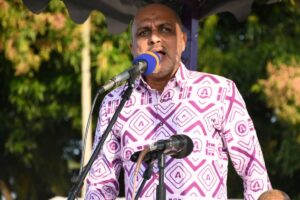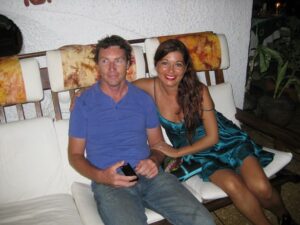Tanzania and the African Union (AU) jointly hosted a high-level side event at the COP29 climate summit in Azerbaijan, aiming to place clean cooking at the forefront of the global climate agenda.
The event, titled “Addressing Clean Cooking Challenges in Africa: A Call for African Leadership,” aims to convene African leaders, policymakers, and international stakeholders to address the pressing need for clean cooking solutions across the continent, where 70 percent of the population still relies on traditional cooking methods.
The session underscored the importance of political commitment, innovative partnerships, and significant financial investment to advance sustainable, clean cooking technologies.
The African Union has prioritised clean cooking as a critical component of both climate action and sustainable development through its African Clean Cooking Programme (ACCP).
This initiative supports efforts to increase access to clean cooking solutions, reduce harmful emissions, and improve public health while driving technological innovation in cooking methods.
The ACCP aligns with the AU’s Agenda 2063, which envisions a prosperous, integrated, and sustainable Africa.
Tanzania has emerged as a leading advocate, highlighting gender-focused approaches to tackling energy and climate challenges. At COP28 in 2023, President Samia Suluhu Hassan launched the Africa Women Clean Cooking Support Programme (AWCCSP), which aimed to raise awareness, foster partnerships, and mobilise financial resources for scaling clean cooking solutions.
Several African nations have prioritised clean cooking in their national energy policies. Ghana has recorded a 36 percent increase in Liquefied Petroleum Gas (LPG) adoption and reports that 30 percent of households use improved cookstoves, advancing energy efficiency in domestic cooking.
Kenya has similarly expanded access, with 2.4 million residents now using LPG for safer, affordable cooking.
Clean cooking solutions are integral to climate strategies, potentially reducing emissions by up to 1.5 gigatons by 2030. The transition supports Sustainable Development Goal 7 (affordable and clean energy) and intersects with other goals, such as SDG 3 (good health and well-being), SDG 5 (gender equality), and SDG 13 (climate action).
During the event, the African Union Energy Commission (AFREC) will unveil a report titled “Sustainable Scaling: Meeting the Clean Cooking Challenge in Africa.”
The publication outlines pathways to scale clean cooking technologies, emphasising the need for innovative financing models and policy frameworks. It underscores public-private partnerships as crucial to unlocking investments necessary for achieving universal access to clean cooking by 2030.
The report calls for enhanced political commitment and coordination among African governments to integrate clean cooking into national energy and climate strategies, setting the stage for greater innovation and sustainable development.
The COP29 side event will serve as a platform for African nations to engage with international partners and the private sector, showcasing Africa’s leadership in addressing global climate challenges.
Source: allafrica.com














